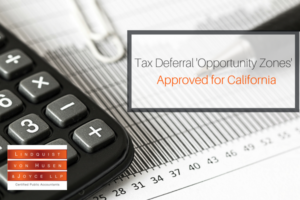 As part of the Tax Cuts and Jobs Act of 2017, the Governors of each state spent the first few months of 2018 requesting public comment and nominating certain census tracts as Opportunity Zones. Out of 3,516 census tracts in the state, 879 were designated by the Governor and all were certified by the U.S. Department of the Treasury in April 2018.
As part of the Tax Cuts and Jobs Act of 2017, the Governors of each state spent the first few months of 2018 requesting public comment and nominating certain census tracts as Opportunity Zones. Out of 3,516 census tracts in the state, 879 were designated by the Governor and all were certified by the U.S. Department of the Treasury in April 2018.
Video: Understanding Opportunity Zones
Within these designated Opportunity Zones, investments made by individuals through special funds would be allowed to defer or eliminate federal taxes on capital gains. Census tracts were nominated based on the following criteria:
- Poverty rates of at least 20 percent, or;
- Median family incomes of no more than 80 percent of statewide or metropolitan area family income
The idea behind the Opportunity Zones is to provide a tax benefit to individuals who invest in economically depressed areas of each state. The California nominated tracts put special emphasis on poverty, areas with established business activity and geographic diversity.
Investments in Opportunity Zones are qualified under Internal Revenue Code (IRC) Section 1400Z-1(b)(1)(B). According to the IRS, “investors can defer tax on any prior gains until the earlier of the date on which an investment is sold or exchanged, or December 31, 2026, so long as the gain is reinvested in a Qualified Opportunity Fund. Second, if the investor holds the investment in the Opportunity Fund for at least ten years, the investor would be eligible for an increase in basis equal to the fair market value of the investment on the date that the investment is sold or exchanged.”
Investors don’t have to live, work or have a business in an Opportunity Zone in order to invest in an Opportunity Zone Fund. Taxpayers will self-certify by attaching a self-certification form to their federal tax returns. The IRS and U.S. Treasury continue to provide guidelines and updates on how taxpayers can invest in Opportunity Zones.
If you believe that investment in an Opportunity Zone could support your future estate planning or business transition planning, contact the tax team at LvHJ.
Source: State of California Department of Finance








